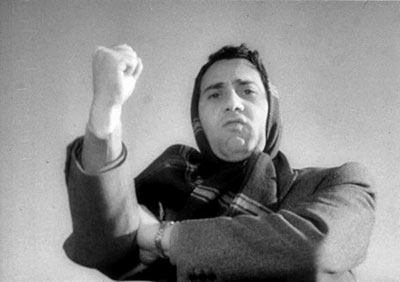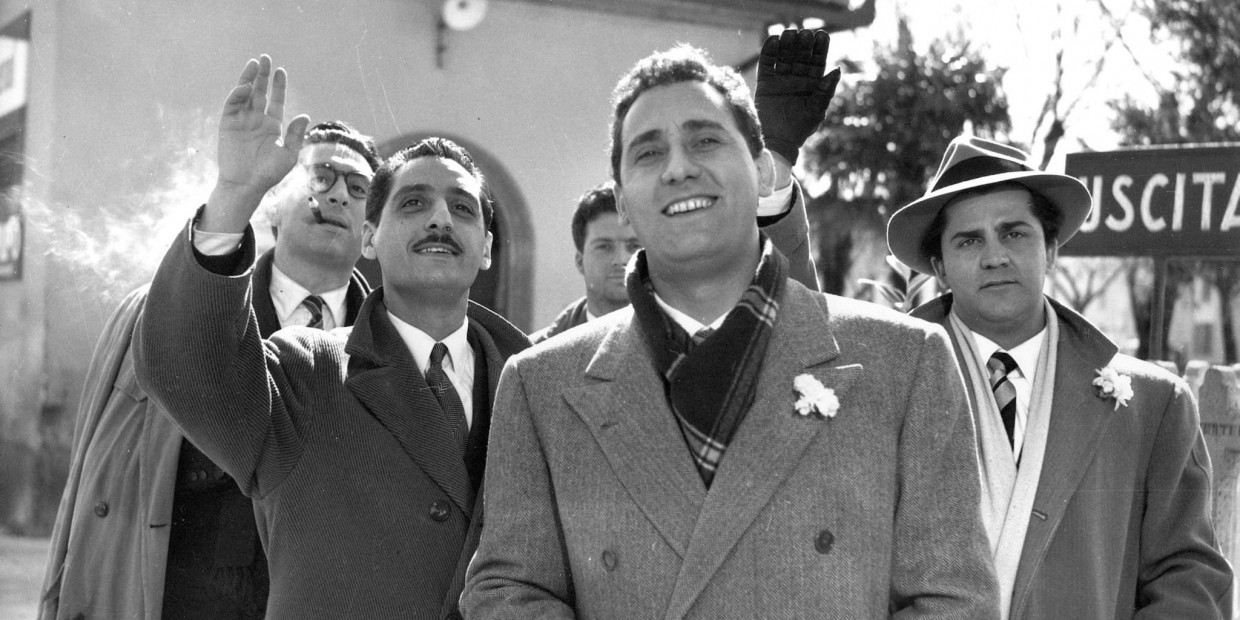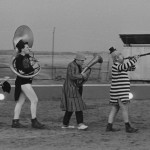By David Pountain
Directed by Federico Fellini
In the opening minutes of the sombre yet nostalgic I Vitelloni, five layabouts find their night out interrupted by a violent downpour. Amidst the circus frenzy provoked by the storm, the youngest of the group, Moraldo, is heard flippantly proclaiming, “It’s beautiful outside, like the end of the world.†In a sense, he’s more right than he realises but, like all endings, this opening scene is also a beginning in more ways than the obvious. For one thing, I Vitelloni was the first film from the renowned Federico Fellini to be distributed internationally and it served as an early indication of the greatness possessed by its director, while remaining an important and beloved work in its own right. As well as Stanley Kubrick naming it one of his ten favourite films, its influence is evident in such revered dramas as Mean Streets and American Graffiti. As for Moraldo and his friend Fausto, a life of post-adolescent aimlessness may be coming to a halt but new and meaningful experiences could be on the horizon if they only manage to find the drive and discipline

The leader of the film’s five central timewasters, Fausto is something of a wannabe Casanova whose habits catch up to him on the aforementioned night when it is revealed that he has impregnated Moraldo’s sister, Sandra – news Fausto hears of just minutes after denying any association with her. While his natural impulse is to skip town, Fausto’s father pressures him into getting married, forcing the man to get a steady job to support his new family. Sandra adapts well to their commitment but the newly shackled Fausto’s eye quickly begins to wander, making presumptuous passes at a woman he sees in the cinema and his boss’s wife. Shortly after the latter case, Fausto sits down with his boss, who explains to him that while married life can involve filling up your time with many a mundane activity, love can keep you from getting bored. Fausto says he understands but evidently doesn’t. Embarrassed of his new position as husband and breadwinner, he seems to think that his promiscuous lifestyle can continue as normal, irrespective of the consequences.
Meanwhile, the relatively considerate Moraldo and the rest of the pack continue to go nowhere fast. Neither singer Riccardo nor aspiring playwright Leopoldo seem to be getting much traction in their respective fields. Alberto is reliant on his mother and independent-minded sister for monetary support. Moraldo himself keeps quiet about his doubts but his wistful scenes of late night contemplation make it clear that part of him is itching to leave. The film stresses the importance of finding meaning and fulfilment in life but doesn’t presume to know best where to look. While some characters see their home town as a dead end, Fellini is also careful to remind us of the people they risk leaving behind in pursuit of bigger things. Fausto selfishly shirks the responsibilities of family life and, in doing so, jeopardises his chance at true happiness but, for the more reticent Moraldo, it may be necessary that he lets his restlessness take him elsewhere.
I Vitelloni is narrower in scope than such later Fellini successes as La Dolce Vita, 8½ and Amarcord but that isn’t necessarily a bad thing. Anyone in the camp who finds the director’s later films to be bloated and indulgent are likely to prefer the neorealism of his ‘50s works. Fellini is already showing a gift here for haunting visual compositions and seriocomic timing but his style is comparatively subdued in favour of letting his actors shine – and shine they do, with committed energy and powerful chemistry. I Vitelloni is a film filled with characters longing to get away from it all. For better or worse, some end up leaving and some stay put but, when the story comes to a close, you’re sad to see every one of them go.
Watch ’I Vitelloni’ at FilmDoo now (UK & Ireland only)





